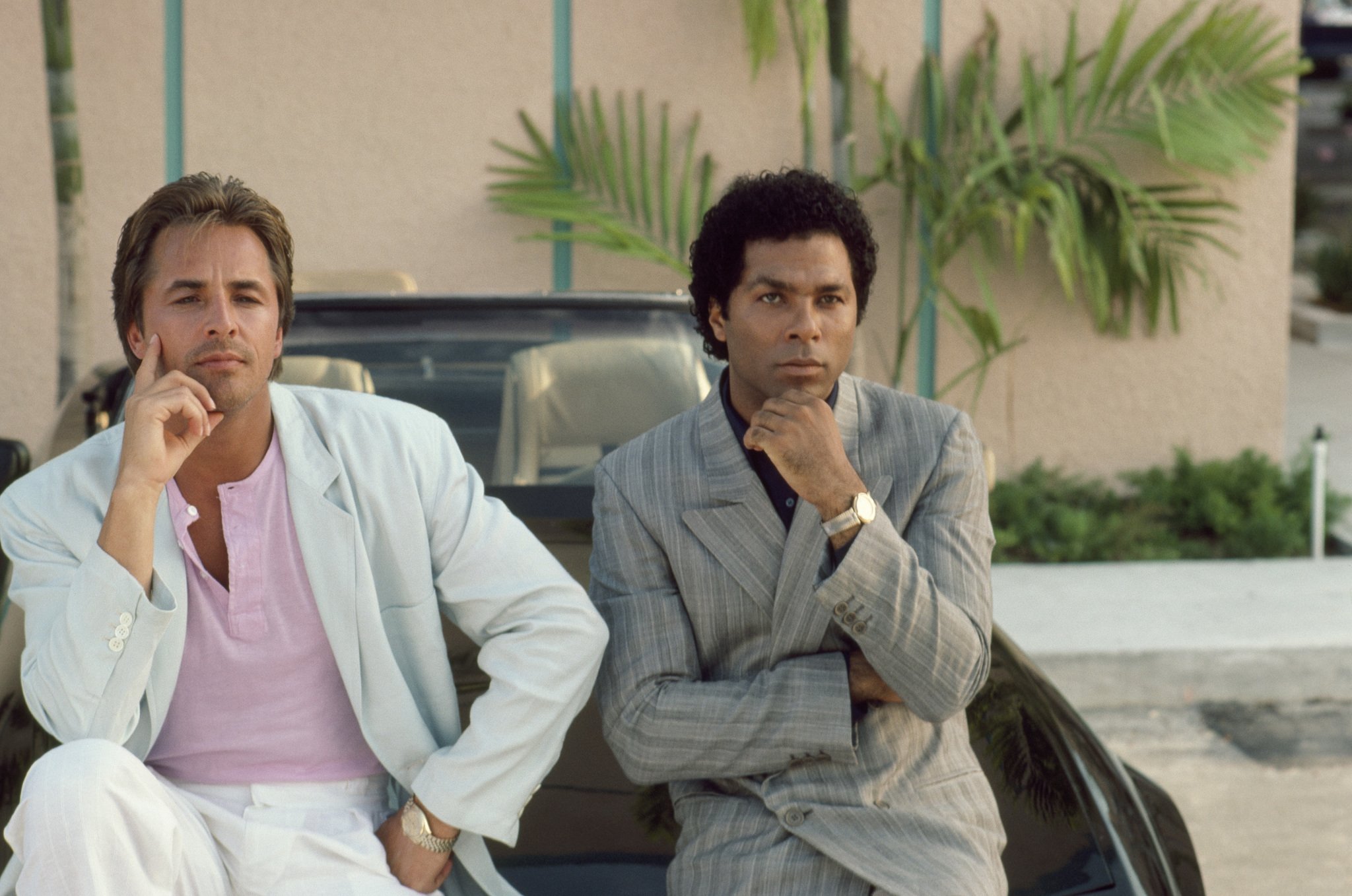Keep Up With the Times, Career Edition
The 1980s is regarded as a decade of excess, conspicuous consumption, materialism, consumerism, and, of course, shoulder pads. Nowhere in popular culture were the tenets of 1980s culture more apparent than on the blockbuster hit that was Friday night’s crowning jewel, Miami Vice. At the time, the show was groundbreaking, gritty, and used a highly stylized visual approach. Vice was the story of 2 Miami-Dade vice detectives, Sonny Crockett (played by Don Johnson) and Rico Tubbs (immortalized by Philip Michael Thomas), who never seemed to work vice cases. Rather than busting gambling or prostitution rings, Crockett and Tubbs spent their time chasing the drug lords who were waging a real-time war in the streets of South Florida.
It was awesome. But, looking at the show through the lens of the 21st century, it is clear that it does not stand the test of time. One thing that Miami Vice lacked was the overt realism we’ve come to expect from our programming and our antiheroes. From two municipal employees dressed in the latest designer couture to keep their “covers” to Crockett’s department-issued Ferrari Testarossa, it is difficult to look at the show now and take it seriously. Apparently, in the 80s, all we needed was an Italian sports car, the latest clothes, and a sock-free lifestyle to catch the bad guys.
If you watch Miami Vice now, you need to suspend reality to get on board. And that is perfectly okay. As much as we know it would never work in practice, those of us “of a certain age” also understand that it was perfectly reasonable that architect Mike Brady designed a home for his blended family in which six children shared one bathroom. We do not question it. At all.
You may wonder what any of this nostalgia has to do with your career? Glad you asked. Here’s the thing. We can quickly and easily point out elements of the culture that have not stood the test of time, but we are often loath to let go of these when they are endemic to our personal and professional lives. Here are a few examples:
Call them and ask if they’re hiring. This piece of advice pre-dates the 1980s. Let’s think about this for a moment. How do you like it when someone calls you without an invitation? And how much do you like it when it’s to ask you to do something, like sign up for an extended warranty on your seven-year-old car? Just don’t.
I need to talk to my boss about my promotion. Do not rely on your boss or your current company to guide your career development. You are the CEO of your career, and as such, you need to manage your career as the premium product it is. The onus? It’s on you.
What’s a good objective for my resume? Stop. No objectives on resumes, ever. Your resume is not about you. That’s right. It’s about the hiring manager’s problems and how you may solve them. Make your resume outside-in rather than inside-out. Also, no mailing addresses or “References available upon request” on your resume, either. Thanks.
Three jobs in the last six years is a red flag. No longer does anyone stay at one company from college graduation through gold watch retirement. People who move from job to job acquire new, valuable skills that can shake up your organization. This is not a negative at all.
But, he doesn’t have a degree. This one makes me want to bang my head against a wall because it’s usually a comment on someone who has excellent experience but didn’t complete a degree. A degree serves as a proxy for experience and knowledge. In the face of actual results, how is a lack of a degree important? Besides, I know plenty of people with fancy degrees who could not solve their way out of a cardboard box. You do, too.
Times change, and with them, so do standards. What was important in decades past may be irrelevant today. The South Beach of Crockett’s and Tubbs’s era was dirty, sketchy, and overrun with two-bit criminals, both organized and disorganized. Remember the chainsaw scene from Scarface? Today South Beach, and much of Dade County, is the playground for the wealthy, a haven from reality. The iconic buildings and hotels such as the Fontainebleau remain but are out of grasp for most average people. SOBE has evolved. If you’re still looking at your life and career through the lens of the 1980s, it’s time for you to step it up, too.


